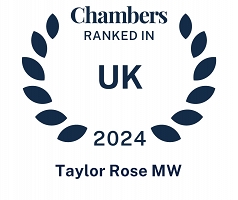Blogs
PART 36 - LATE ACCEPTANCE IN FIXED COSTS CASES - FOUR CIRCUIT LEVEL APPEAL DECISIONS
Mon 14 August 2017
Four recent circuit level decisions have dealt with appeals from applications for indemnity costs following late acceptance of claimant’s Part 36 offers in fixed costs cases.
There has been a wave of such applications in the wake of Broadhurst v Tan [2016] 1 WLR 1928. The Court of Appeal held indemnity costs apply after the relevant period where a claimant beats his Part 36 offer at trial. Claimants say there should also be a penalty for acceptance outside the relevant period. Defendants say fixed costs should still apply throughout.
None of the circuit judges allowed indemnity costs. Absent a rule-change or a surprise senior courts decision, applications for indemnity costs in these circumstances seem dead.
However, the judges have differed on the costs to allow after the relevant period. Two allowed costs assessed on the standard basis, and the other two allowed fixed costs in accordance with Section IIIA (fixed costs were allowed in all cases down to the end of the relevant period).
This is an examination of the differing conclusions.
Richard v Wakefield Council [2017]:
The first case is Richardson v Wakefield Council (9 June 2017). His Honour Judge Gosnell in Leeds said at [24] and [25]:
rule 36.13 (4) and (5) state that where the parties cannot agree the liability for costs the court must, unless it considers it unjust to do so, order that the claimant be awarded her costs up to the date the relevant period expired and the defendant shall also pay the claimant’s costs for the period from the date of expiry of the relevant period to the date of acceptance. In deciding whether it would be unjust to make this order the court must consider the matters listed in rule 36.17(5). These provisions do not appear to have been varied by rule 36.20 save in relation to offers made by defendants and I must assume that omission is intentional. By analogy with the decision in Broadhurst v Tan this would mean that the costs after the expiry of the relevant period would be ordered to be paid by the defendant to the claimant to be assessed by the court rather than fixed by the rules…
If the claimant’s interpretation of the rules is correct, then the claimant in this case will get the fixed costs she is entitled to up to the date of expiry of the relevant period plus assessed costs up to the date of acceptance. Whilst she would have received the same amount of costs if the relevant period had expired on 1 August 2016 (when the offer was accepted) than when it actually expired on 23 June 2016 (because it is likely both dates are within the same stage in Table 6D of rule 49.29E) it is likely that her solicitors will have expended costs during that short period which they should not have had to expend if the defendant had accepted the part 36 offer promptly. It does not seem unfair to me that the defendant should compensate the claimant in this way and it is not a windfall to the claimant in the true sense of that term.
The judgment does not contain any reasoning on why CPR 36.13(4) and (5) result in fixed costs down to the end of the relevant period but assessed costs thereafter. The reasoning instead sets out what the judge considers to be fair.
Anderson v Ladler & Aviva [2017]:
The next case is Anderson v Ladler & Aviva (8 May 2017, but handed down in late June). His Honour Judge Gargan in Newcastle allowed fixed costs throughout because of a concession by the claimant. He said at [44]:
The parties agree that if the court makes an order for costs to be assessed on a standard basis in a former RTA Protocol case the claimant will only recover fixed costs. (I have not been asked to make findings as to why this is the case. However, the reasoning set out by DJ Besford in paragraph 14 of his judgment in Sutherland appears to be the most appropriate explanation).
Sutherland v Khan was a first instance decision that encouraged these indemnity costs applications (notwithstanding several others failed). The regional costs judge allowed indemnity costs, but at [14] he said:
By dint of clever footwork, Mr Smith submits that if I was to make an award of costs on the standard basis, then I should look to part 45.29B which stipulates that ‘the only costs allowed’ are fixed costs. So, an order for standard costs would circuitously bring the claimant back to part 45.29B and fixed costs.
Whether that is the basis on which the parties agreed the issue is unknown. It is common in practice where there is an order for assessment on the standard basis but the rules provide for fixed costs, the parties still apply the fixed costs. That sensible approach saves the need for specific ‘magic’ wording when making an order for costs in principle in a fixed costs case. Fixed costs have replaced assessment on the standard basis in the captured cases.
That reasoning would also explain why costs are fixed down to the end of the relevant period as well as after. It has an attractive symmetry.
This reasoning and practice seems to be an extrapolation from Solomon v Cromwell[2011] 1 WLR 1048, in which the Court of Appeal held that a general right to costs on the standard basis arising on acceptance under Part 36 gave way to the specific rules for fixed recoverable costs in CPR 45 Section II.
McKeown v Venton [2017]:
The third case is the judgment of His Honour Judge Graham Wood QC in McKeown v Venton (12 June 2017, handed down in July). He sat with Regional Costs Judge Jenkinson as assessor. He said at [48] and [49]:
It is relevant, in my judgment, that Part 36 in its current incarnation makes specific reference to fixed costs cases (CPR 36.13(1) and (3)), and in one respect devotes two entire rules to such cases, when addressing the consequences of accepting a Part 36 offer (CPR 36.20) and following judgment (CPR 36.21) for a claimant who fails to beat a defendant’s Part 36 offer. It is axiomatic that in both rules the draftsman has referred specifically to defendant Part 36 offers and not those made by claimants. They could be two reasons for this. Either it was an oversight and there is a lacuna in the rules; or alternatively it was within the specific contemplation of those drafting that CPR Part 45 contained a sufficiently clear and concise matrix of applicable costs to enable the claimant, whose claim was brought to an end by the defendant’s acceptance (whenever that might be) to determine easily the costs entitlement under the appropriate tables. It seems to me that the latter is far more likely. It would have been open to the rules committee to have provided a similar provision for late acceptance specifically directed to fixed costs cases as that contained in CPR 36.20(4)(b) addressing a defendant’s liability for additional accrued costs in such cases.
Thus, there is no provision for moving from fixed costs to assessed standard basis costs as a consequence of late acceptance, where the fixed costs regime applies. In this regard I find myself in respectful disagreement with my brother judge His Honour Judge Gosnell, in the unreported case of Richardson and Wakefield Council.
In all of these judgments, that passage is the most thorough reasoning on the point. That is essentially the same reasoning as that cited by His Honour Judge Gargan.
Hislop v Perde [2017]:
Finally, Her Honour Judge Walden-Smith in Central London handed down judgment in Hislop v Perde on 8 August 2017. The claimant conceded at first instance that fixed costs would apply throughout if indemnity costs were not ordered, and the deputy district judge did indeed apply fixed costs throughout, but that concession seems to have been impliedly withdrawn on appeal. The judge said at [37]:
In my judgment, CPR 36.10 makes clear that if the offer is accepted within the relevant period then, within the fixed costs regime, fixed costs will be awarded; if accepted outside the relevant period then costs will be fixed within the relevant period and the court will make an order as to costs if those costs are not agreed between the parties and the “offeree [either Claimant or Defendant] will be liable for the offeror’s costs [either Defendant or Claimant] for the period from the expiry of the relevant period until date of acceptance.” Whether those costs are standard or indemnity is a matter for the discretion of the judge.
Although the old CPR 36.10 is said to make that clear, the judgment contains no further reference to the wording that apparently does so – either in regard to fixed costs within the relevant period or assessed costs after. The judge simply ruled out fixed costs after the relevant period from the outset. In email remarks before handing down, the judge opined that Solomon v Cromwell applied only where an offer was accepted within its relevant period.
Two camps
So there are two camps. His Honour Judge Gosnell and Her Honour Judge Walden-Smith are in one: Part 36 does not say that fixed costs apply after late acceptance, so costs after the relevant period are on the standard basis. His Honour Judge Wood QC and His Honour Judge Gargan are in the other: fixed costs apply as they are not expressly ousted by Part 36.
Which is right? The logical advantage of the latter camp is that it explains why costs are fixed down to the end of the relevant period. That is an anomaly in the former camp. That latter camp appears to accord with the approach in Broadhurst v Tan, in which fixed costs were allowed down to the end of the relevant period even though nothing in Part 36 spelled out that was the appropriate order.
The former camp gives standard basis costs for accepting an offer after its relevant period as permitted by CPR 36.11(2); to get standard basis costs under CPR 45 Section IIIA, CPR 45.29J says there must be ‘exceptional circumstances’. There is also the old chestnut of ‘swings and roundabouts’.
As a matter of policy, it appears to be a backward step to set aside fixed costs and have an assessment instead.
Lord Justice Jackson in his report on fixed costs addressed consequences of a claimant beating his offer at trial, but did not suggest any further provision for late acceptance. That may mean he did not consider it necessary or appropriate, or may simply be because there was no case such as Broadhurst v Tan [2017] that he had to confront.
It is not yet known whether any of these cases will proceed to the Court of Appeal. Sooner or later the issue will probably go, and then after 18 months or so we will have a definitive answer.
For more information, please contact our Peterborough office on 01733 333 333.





















